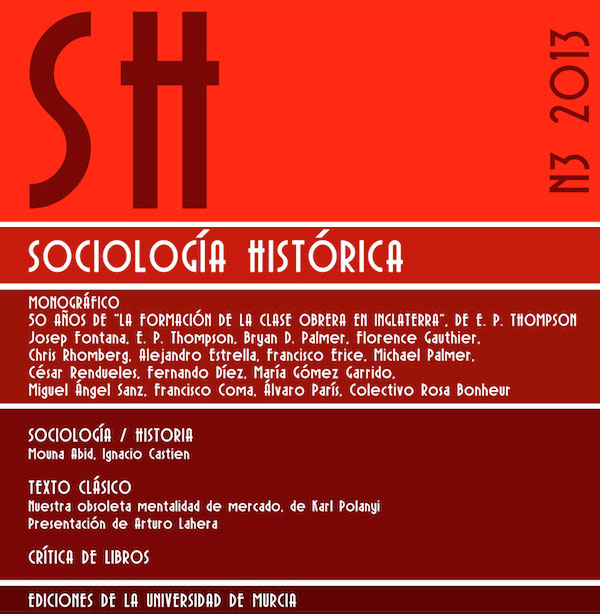Class and Collective Action: Writing Stories about Actors and Events
Abstract
In this article I re-visit E.P. Thompson’s The Making of the English Working Class to find resources for doing historically-grounded studies of class and collective action. Building on Thompson’s work, I argue that historical analyses of collective actors should be both sociologically robust and dramatically persuasive. I begin by reviewing Thompson’s portrayal of class formation in The Making, which I describe as a form of “collective biography.” I discuss some limits of collective biography, including the problems of discontinuity, narrative central subject, and reification. I compare Thompson’s class analysis with that of his contemporary historian Barrington Moore, Jr., as a way of highlighting the problem of representing class actors. I then propose an alternative approach that breaks down the analysis along the dimensions of economy, state, and civil society, in which class functions as a necessary but not exclusive medium of actor formation and historical agency. Finally, I introduce a few examples of historical research from the United States that illustrate the potential for this perspective.Downloads
-
Abstract578
-
PDF595
-
PDF (Español (España))595
Las obras que se publican en esta revista están sujetas a los siguientes términos:
1. El Servicio de Publicaciones de la Universidad de Murcia (la editorial) conserva los derechos patrimoniales (copyright) de las obras publicadas, y favorece y permite la reutilización de las mismas bajo la licencia de uso indicada en el punto 2.
2. Las obras se publican en la edición electrónica de la revista bajo una licencia Creative Commons Reconocimiento-NoComercial-SinObraDerivada 4.0 España (texto legal). Se pueden copiar, usar, difundir, transmitir y exponer públicamente, siempre que: i) se cite la autoría y la fuente original de su publicación (revista, editorial y URL de la obra); ii) no se usen para fines comerciales; iii) se mencione la existencia y especificaciones de esta licencia de uso.
3. Condiciones de auto-archivo. Se permite y se anima a los autores a difundir electrónicamente las versiones pre-print (versión antes de ser evaluada) y/o post-print (versión evaluada y aceptada para su publicación) de sus obras antes de su publicación, ya que favorece su circulación y difusión más temprana y con ello un posible aumento en su citación y alcance entre la comunidad académica. Color RoMEO: verde.










